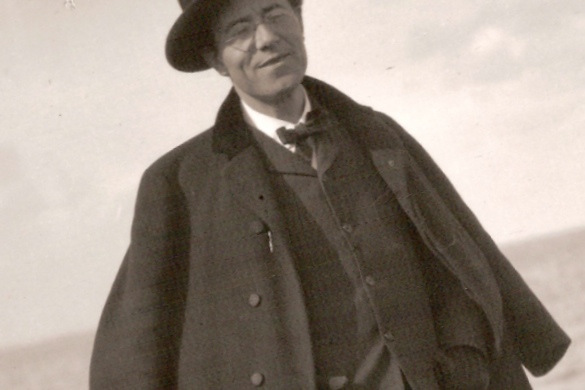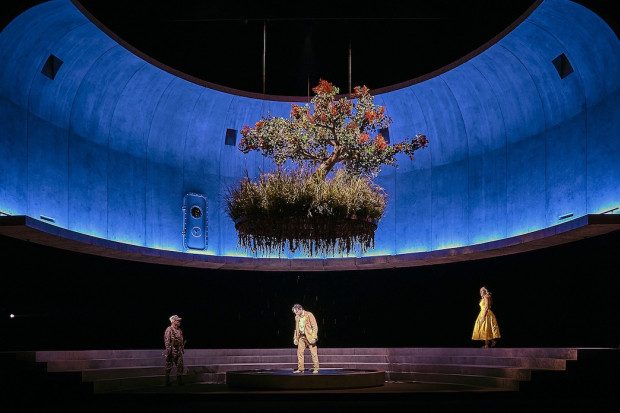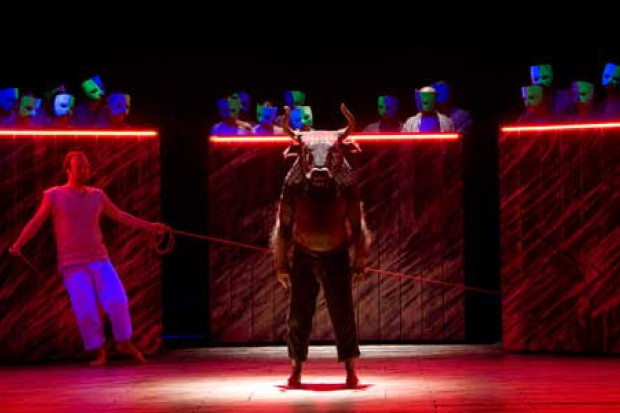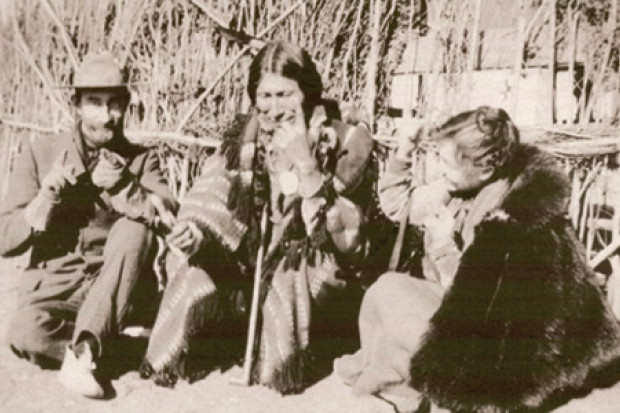
Mahler Everywhere
Why Mahler? How One Man and Ten Symphonies Changed the World
Norman Lebrecht
Faber, 2011
Mahler Remembered
Norman Lebrecht
Faber Finds, 2010
My father’s favourite composer was Mahler. I can still picture him seated in his favourite chair, head back, gazing at the ceiling in rapture, his sanctum sanctorum awash in thick, heavy music. I omit the usual qualifier, Austro-Germanic, because at five or four what did I know? I liked the Beatles and Louis Armstrong and Bing Crosby and Schubert’s Unfinished Symphony — which I knew, growing up in the United States, as the theme music for The Late Show, the opening bars of the second movement anyway. Years later, with a little learning and violin and trumpet lessons in my favour, my father expanded on his love of Mahler which began at a performance of the Second Symphony (The Resurrection) by the Philadelphia Orchestra and its legendary conductor, Eugene Ormandy. It was love at first hearing.
What did he know of Mahler? a savvier, big-city colleague of his asked, cracking wise. But for my father, a small town boy from Dixie come North to study amongst the Yankees, it wasn’t a matter of knowing, it was a matter of feeling. More than any other composer he’d heard before, Mahler seemed uniquely endowed with the gift of expressing the inexpressible. There was a yearning in his sound, a reaching up towards the light from the darkest depths, a juxtaposing of the mundane with the celestial, endurance and wisdom. It was music that spoke to the human condition.
In Why Mahler? How One Man and Ten Symphonies Changed the World, the journalist and broadcaster Norman Lebrecht speaks of this ‘Mahler Effect’, ‘a dormant presence in our collective unconscious’ that makes itself ‘available when needed and touching even those who actively reject his music’.
There’s Mikhail Gorbachev’s recollection of Claudio Abbado conducting the Fifth Symphony in the dying days of the Soviet Union — this was music the Russian President and his wife, Raisa, had never heard before. ‘Mahler’s music somehow touched our situation, the period of Perestroika with all its passions and struggles. In life there is always conflict and contradiction, but without those — there is no life.’ Raisa Gorbachev spoke of ‘despondency’, of ‘a feeling that there is no way out’. Unbeknownst to them, the Gorbachevs had already heard Mahler but through Soviet era composers such as Shostakovich and Schnittke who acquired the craft of musical irony and dissimulation from Mahler — anti-Semitism dogged Mahler’s every step in Austria and Hungary — as much out of necessity as esteem.
Then there’s Gilbert Kaplan, a Wall Street maven obsessed with The Resurrection — a Stokowski rehearsal did it for him — who undertook a serious study of music and now wields a baton conducting wherever he can (usually at his expense). Conducting what? The Resurrection. There’s the Adagietto from the Fifth Symphony, Mahler’s ‘greatest hit’ thanks to Visconti’s Death In Venice, which became, along with Samuel Barber’s Adagio – itself a lift from Mahler, the music of mourning and consolation in post-9/11 America. Finally there’s the failed provincial conductor, unhappily married, drinking heavily, whose life is transformed by a Mahler biography — Klaus Tennstedt went on to become arguably the greatest Mahler interpreter of the post-war era, a man who brought out the demonic in his saviour. For Tennstedt, Mahler was nothing less than ‘a matter of life and death’.
Creator of the Modern World?
Because Lebrecht sees Mahler as an Everyman, he sees Mahler everywhere. Indeed, Mahler, to him, is the creator of the modern world, at the very least its personification. Mahler was at the epicentre of Viennese life — cabbies hailed him in the street, the Emperor commended him to his doctor, Klimt depicted him as a knight in shining armour in his Beethoven Frieze — at a time when the Habsburg capital was evolving into a hothouse of Modernism, ‘the crucible of contemporary culture’. All the same, this is Fleet Street hyperbole pitched at shifting books. Similar weighty tomes abound on Freud (a music-hater, except for Mozart operas) and Wittgenstein (who thought Mahler’s music worthless), not to mention Strauss and Hofmannstahl. The affinities with Freud — who famously rushed to Leiden to analyse Mahler, then in the throes of a marital crisis — are striking, but Lebrecht’s attempts to find parallels with Einstein are overblown, pseudo-scientific. Wittgenstein’s proposition, ‘whereof one cannot speak, thereof one must be silent’, might not have gone amiss here.
Lebrecht is on safer ground musically, for this was truly the Age of Mahler, not only in terms of influence — Schoenberg and his disciples, Berg and Webern, worshipped him — but also in technique and performance. (A chart in Mahler Remembered, an indispensable compendium of mainly first-hand accounts, links Mahler to nearly every twentieth-century composer of note, from Busoni to Xenakis, as if they were constellations in his orbit.) An inspiring, demanding leader, Mahler whipped the Vienna Philharmonic, notorious for Schlamperei (‘slovenliness’ in local dialect), into shape and made it a worthy rival to the Berlin Philharmonic and the Concertgebouw of Amsterdam. He had the foresight to take on the painter Alfred Roller — one of his wife Alma’s bohemian friends — as his designer at the Vienna Court Opera. A fin de siècle visionary, Roller jettisoned the cumbersome bric-a-brac of the nineteenth-century stage and went for a lean, austere look that quickly became standard in theatre as well as opera. (Roller was later hired by an ambivalent admirer of Mahler’s, Adolf Hitler.)
Still, to assert, as Lebrecht does, that ‘no composer has had a greater influence on the music of the twentieth century than Gustav Mahler’ shows a wilful lack of perspective. One doesn’t have to be a Perfect Wagnerite to know that Old Klingsor has been the most influential cultural figure of the last 150 years of music and that Young Man Mahler was under his vast sway, as Perfect a Wagnerite as any. Luckily Mahler found his own voice early on but an echo of Wagner remained in the background, as it does in Richard Strauss and Schoenberg and even in Debussy however much he scorned Germans. As the bridge from Wagner (and Brahms, a mentor) to the Second Viennese School, Mahler, a towering innovator, occupies a significant, pivotal role in musical history. He doesn’t need special pleading.
Despite the boosterism, the cringing essays at relevance – trying to locate Mahler in a Jerry Garcia solo is the kind of cockamamie thing best left to American critic Greil Marcus — and the tiresome ploy of damning others, usually Strauss and, predictably enough, Alma Mahler (I prefer the satirist Tom Lehrer’s take on her) in order to praise Mahler, Why Mahler is better than its ponderous subtitle might suggest. The discography is invaluable and raises the whole tenor of what could so easily have been a mangy Heldenleben.
Oh yes, for me it was the ‘Tragic’ Ninth Symphony, Bruno Walter (Mahler’s protégé) and the Vienna Philharmonic, 1938 — the year of Anschluss. Heartbreaking…
Published on 1 November 2011
George Rafael is a writer on film and music based in London. He has contributed to Cineaste, The First Post, Opera News, Film Comment and Salon.
















